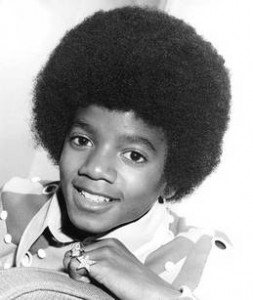Michael Jackson’s stunted growth was the result of leaving a child star at the mercy of big corporations looking to turn a profit.
Even at the height of his fame, and before subsequent scandals and lawsuits, it was clear to some that Michael Jackson was troubled. This article was originally published in The New Republic on 16 April 1984.
At age five, Michael J was a healthy, normal child with a talent for music. Today, 20 years later, he lives in what observers describe as a “fantasy world”, isolated physically behind tall gates and mentally in a Disney landscape, which he thinks is real. His favourite toy is an electric car modelled after Mr Toad’s Wild Ride at Disneyland. “He has had no adult life,” writes one journalist who has studied his case. His closest friends are animals (“I think they’re sweet,” he explains), including a pet boa constrictor (“Snakes are very misunderstood”), and several life-size mannequins. (“I surround myself with people I want to be my friends. And I can do that with mannequins. I’ll talk to them.”)
Michael J has developed weird androgynous looks and a high falsetto voice. He favours an eccentric half-military, half-debutante style of dress. His keepers deny that he takes female sex hormones, but admit that he’s had plastic surgery to give his face a softer look. Does he mind appearing schizophrenic? “I don’t mind. I feel I’m Peter Pan as well as Methuselah, and a child.”
Doctor, what has happened to Michael J? What’s happened is that Michael Jackson has become the most successful musical performer ever, if success is measured in dollars (as of course it is). His album Thriller has sold 31 million copies. His next tour is expected to gross $100m. He’s bigger than Sinatra, Elvis, the Beatles, Jesus, Beethoven – all of them.
Michael Jackson’s extreme abnormality is part of his act. Unless the media are perpetrating a gigantic hoax, it’s also genuine. He’s a freak. This total merging of person and performance is central to today’s rock music, and for all I know, it’s art. But is it life? Of course artists throughout history have sacrificed their lives, even their minds, for art. But two features of Michael Jackson’s sacrifice make it different.
First, he never really had much of a choice. As soon as Joe Jackson realised that his sons (who became the Jackson 5) had musical talent, he began training them two to three hours a day. “They got a little upset at the beginning,” he told Time magazine. Michael Jackson recalls in a paperback called The Michael Jackson Story: “When I was five, I was touring, singing and dancing. Always gone, always out of school.” In 1968, when Michael was 10, the Jacksons were discovered by Berry Gordy of Motown, who moved them to Los Angeles. Michael, already clearly the star, lived for a year and a half with Diana Ross instead of his family. Published Jacksonalia contain some vague references to school, but the Jackson office in Hollywood refuses to give a straight answer about what schooling Michael had and how far he got.
At first, Motown marketed the Jacksons as a wholesome midwestern black family, and Michael as clean-cut and cute. During the 1970s, however, the image got funkier, especially after the family switched allegiances to a record division of CBS in 1976. During his teenage years, when most children face an incentive structure that encourages them to act mature and rational, Michael Jackson was getting positive feedback for remaining childlike (voice and all) and turning weird. (Age 19, 1977: “I love rats, you know. … I really do feel like I’m talking to a friend when I play with them.”)
This points up a second way Michael Jackson’s sacrifice for art is different from, say, van Gogh’s. Jackson’s art is also big-time commerce. Corporations supervised his development, and even bigger corporations are making millions off of him: CBS (which features Jackson on the cover of its 1983 Annual Report), Pepsico (which has $50m riding on a Jackson ad campaign), Time Inc (which sells magazines by putting him repeatedly on its covers), and others. It’s happened in front of millions of paying customers.
What’s happened to Michael Jackson isn’t too different from what they used to do to young male singers in Europe a few centuries ago, to keep their voices sweet. In another way, it resembles the exploitation of child stars like Judy Garland in the heyday of the Hollywood studios. In fact, what American capitalism has done to Michael Jackson is even a bit like what the Soviets do to their women athletes. To Read Full Article >>
By Michael Kinsley guardian.co.uk, Sunday 28 June 2009 15.00 BST